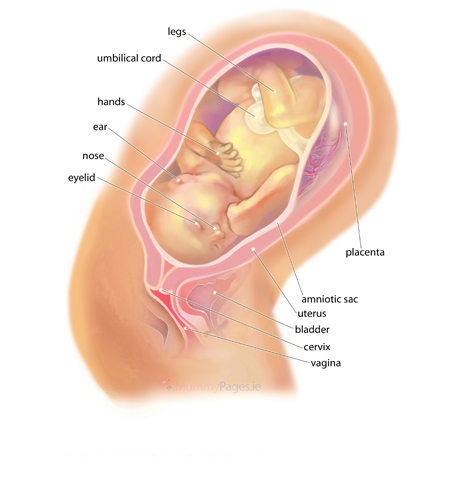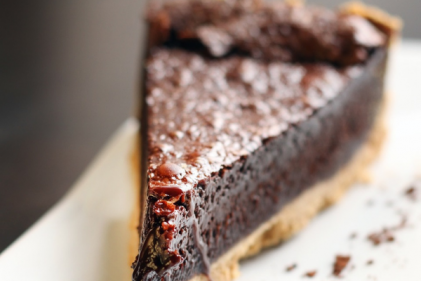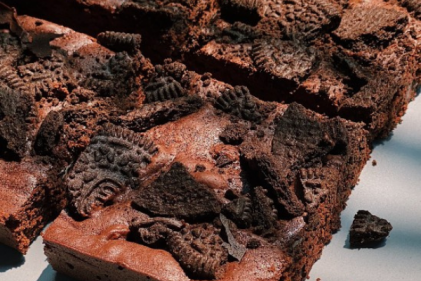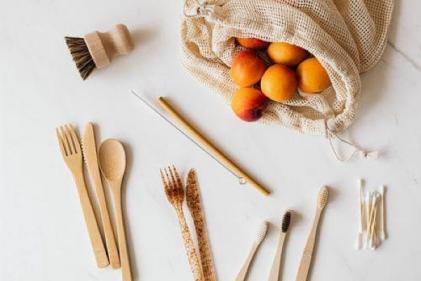Congratulations! You and your baby have made it to week 38 which is considered ‘full-term’. This means that if you were to go into labour now and give birth, your baby would be considered fully mature and would be just fine. At this time in a woman’s pregnancy, she usually will let out a sigh of relief knowing that her baby will be born very soon.

Your Baby this Week

Your baby is now around the size of a watermelon.
In these final days of your pregnancy, your baby is now getting ready to meet his mum and dad. In week 38, your baby now weighs close to 3.2 kg (7 pounds) and measures from 48 to 53cm (19 to 21 inches) in length. (This is only an average length and weight. Naturally, some babies are much smaller or larger depending on many factors. Even the measurements that your doctor takes on your belly are not exact – only ultrasound measurements can come close to the real size and weight. But, for the most part, these weekly average measurements give you an idea of your baby’s size.)
During week 38, your baby’s head and abdomen are about the same size as last week but he is continuing to gain about an ounce per day. Your baby is also continuing to produce meconium in his intestines. Meconium is the substance that collects in the intestines while the baby is in the uterus. As the baby swallows amniotic fluid, the tiny particles of lanugo (the little hair that covers the baby’s body to keep his temperature regulated), bile, and cells shed from his skin are ingested. These contents form meconium, which is the baby’s first bowel movement. Meconium is a sticky, green and black coloured substance that is very thick. A baby’s bowel movements in the first few days will be meconium and then will change to yellowish or green stools.
In week 38, like the rest of his body, your baby’s sexual organs are fully formed and functioning. For boys, the testes have made their descent into the scrotum and for girls, the labia is fully developed.
Your Body this Week

Now that you are so close to your due date, you should know what to expect over the next couple of weeks. Most women do not deliver very close to their due dates. In fact, about 88 percent of all babies are born within a two week window of the due date. So, it’s a good idea to get familiar with the signs and symptoms of labour.
Labor typically has three stages; pre-labour, false labour, and real labour.
- Pre-labour is the period of time that your body is preparing to give birth. During this time, your baby will drop into the pelvic area (also known as ‘lightening’). You could also have a vaginal discharge that has a brown or blood tint to it (this is the loss of your mucus plug). Braxton Hicks contractions are more frequent, and the nesting instinct is in full force.
- False labour occurs when Braxton Hicks contractions are intense enough that it begins to feel like labour. Braxton Hicks contractions differ from real labour in that they are only felt in the front of the abdomen and not the back. Additionally, Braxton Hicks contractions do not get closer together and they can usually be alleviated by moving around. The biggest difference between Braxton Hicks contractions and real labour is that your cervix does not soften or dilate.
- Real labour will include all the pre-labour signs in addition to your water breaking and contractions that get closer together and become more painful with each episode. The intensity of the contraction is noticeably different as labour progresses. The pain will normally start in the lower back and then move to the abdomen. When you move around, it hurts more, unlike Braxton Hicks contractions which are lessened with movement. And, during real labour, the cervix softens and dilates.














